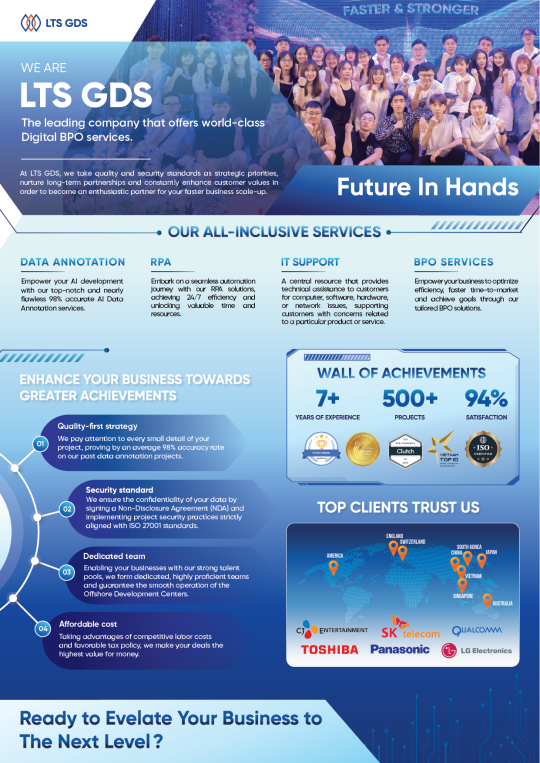Text
Elevating Efficiency: AI-RPA Synergy!

The integration of Artificial Intelligence (AI) and Robotic Process Automation (RPA) has catalyzed a transformative shift in the landscape of business automation, leading to the emergence of Intelligent Automation (IA). As organizations increasingly seek innovative solutions to streamline operations, enhance efficiency, and deliver superior customer experiences, the synergy between AI and RPA has become instrumental in achieving these objectives. By combining the cognitive capabilities of AI with the rule-based automation of RPA, IA offers a powerful framework for automating complex processes, optimizing decision-making, and driving digital transformation across industries. This integration empowers businesses to leverage advanced technologies to augment human capabilities, unlock new levels of productivity, and foster a culture of continuous improvement.
Explore how AI and RPA can work together here!
2 notes
·
View notes
Text
Understanding Trustworthy AI: Essential Components and Practices

Trustworthy AI pertains to the creation and utilization of AI systems that function dependably, ethically, and with transparency. It must adhere to principles concerning fairness, accountability, integrity, privacy, and safety within AI applications and decision-making protocols. These fundamental principles serve as the foundation for ensuring responsible AI usage and reducing potential harm. A recent notable instance involves the proliferation of Generative AI for content creation, which has underscored challenges in managing deepfake content and addressing bias within AI-generated outputs.
For detailed information, visit us to see the full article here!
2 notes
·
View notes
Text
Our IT Services

With more than 7 years of experience in the data annotation industry, LTS Global Digital Services has been honored to receive major domestic awards and trust from significant customers in the US, Germany, Korea, and Japan. Besides, having experienced hundreds of projects in different fields such as Automobile, Retail, Manufacturing, Construction, and Sports, our company confidently completes projects and ensures accuracy of up to 99.9%. This has also been confirmed by 97% of customers using the service.
If you are looking for an outsourcing company that meets the above criteria, contact LTS Global Digital Service for advice and trial!
2 notes
·
View notes
Text
A Guide to Choosing a Data Annotation Outsourcing Company

Clarify the Requirements: Before evaluating outsourcing partners, it's crucial to clearly define your data annotation requirements. Consider aspects such as the type and volume of data needing annotation, the complexity of annotations required, and any industry-specific or regulatory standards to adhere to.
Expertise and Experience: Seek out outsourcing companies with a proven track record in data annotation. Assess their expertise within your industry vertical and their experience handling similar projects. Evaluate factors such as the quality of annotations, adherence to deadlines, and client testimonials.
Data Security and Compliance: Data security is paramount when outsourcing sensitive information. Ensure that the outsourcing company has robust security measures in place to safeguard your data and comply with relevant data privacy regulations such as GDPR or HIPAA.
Scalability and Flexibility: Opt for an outsourcing partner capable of scaling with your evolving needs. Whether it's a small pilot project or a large-scale deployment, ensure the company has the resources and flexibility to meet your requirements without compromising quality or turnaround time.
Cost and Pricing Structure: While cost is important, it shouldn't be the sole determining factor. Evaluate the pricing structure of potential partners, considering factors like hourly rates, project-based pricing, or subscription models. Strike a balance between cost and quality of service.
Quality Assurance Processes: Inquire about the quality assurance processes employed by the outsourcing company to ensure the accuracy and reliability of annotated data. This may include quality checks, error detection mechanisms, and ongoing training of annotation teams.
Prototype: Consider requesting a trial run or pilot project before finalizing an agreement. This allows you to evaluate the quality of annotated data, project timelines, and the proficiency of annotators. For complex projects, negotiate a Proof of Concept (PoC) to gain a clear understanding of requirements.
For detailed information, see the full article here!
2 notes
·
View notes
Text
8 Tech Trends to Leverage in 2024

To get more information, see the full article here!
3 notes
·
View notes